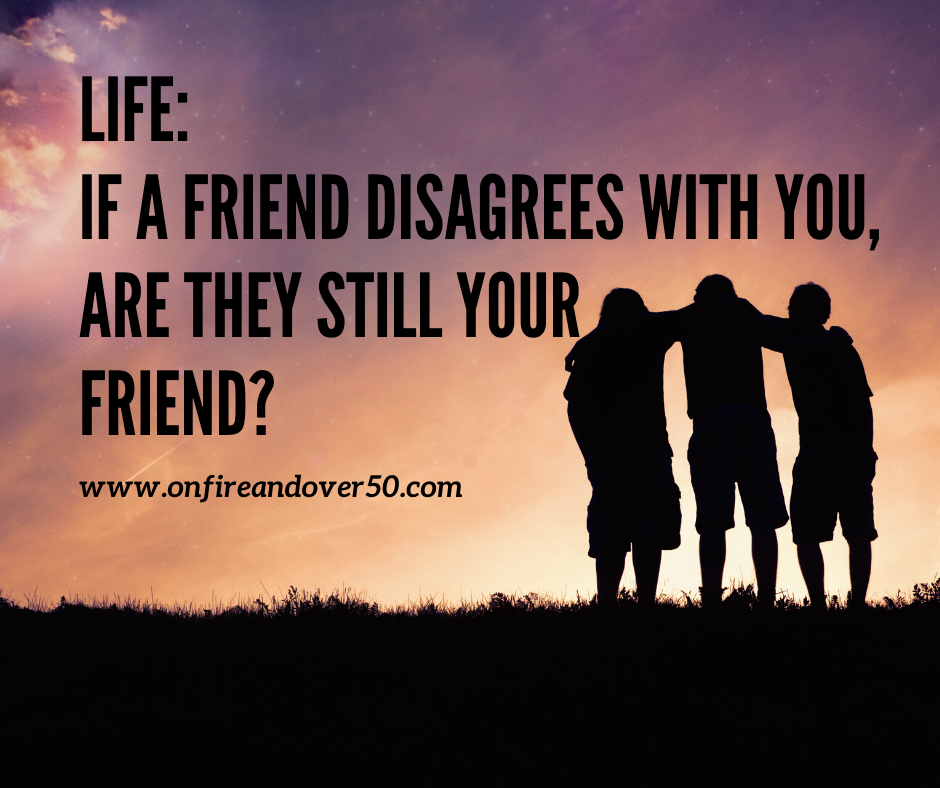in me."
Henry Ford
Everyone wants a friend that they can depend on to be there for them when no one else is. Someone who will let them be who they are without judgments. A friend who understands you and loves you anyway, even when they know all your faults.
What if that person doesn't always agree with your way of thinking or doesn't always back you up in a dispute or disagrees with some of your decisions and lets you know it, are they still a friend?
The answer to that question depends on what you want from a friend. Do you want someone who let's you know when you are messin' up? When you thinking wrongly? Or do you want someone who is always in your corner, whether you are right or wrong?
I have known some from both sides of that argument. Some people i know like to have a friend who will be honest with them no matter what, but still stands with them no matter if they are right or wrong. Some people I know will not be friends with anyone who disagrees with them or who doesn't see things the same way they do. Everyone has needs and everyone's needs are different. Or are they?
Deep down to the core of what a true friendship means is the same for everyone - trust. We all want that one friend that we can trust with the bad stuff as well as the good stuff about us. They may not always agree with us, but they always support our right to our thoughts, feelings, and beliefs. They accept us for who we are with all our weaknesses and all our strengths.
If someone doesn't agree with you, it doesn't mean that they are not a good friend. Just as you most likely won't always agree with your friend all the time, that doesn't mean you are not a good friend to them.
Personally, I would rather have a friend who is honest with me, even if I don't always like what they have to say, but still supports me regardless if we see eye-to-eye, than someone who lets me make mistakes that they may have prevented or wants me to agree with everything they say. I want someone who accepts me, faults and all and I will do the same for them.
"A friend is someone who gives you
total freedom
to be
yourself."
Jim Morrison
Sometimes it takes getting older to realize what is valuable in a friendship. When we are young, most of us just wanted to be accepted. Some of us may have compromised our needs or beliefs in order to find that acceptance. When we were young, we may have had a spat with a friend that lead to more misunderstandings and hurt feelings. Now that we are older, hopefully we know how to handle those differences (spats) and not let them ruin a good friendship.
You decide:
1. Do you want a "friend" who always agrees with you even when you are wrong?
2. Do you want a "friend" who will stand with you against others, but then in private tell you where you messed up?
3. Do you want a "friend" who can be trusted with all your faults as well as all your strengths?
4. What kind of a "friend" are you?
"The most I can do for
my friend is simply be his friend."
Henry David Thoreau
No one lives forever and a good friend or two can make getting older a lot easier and happier. Don't let foolish little spats or differences in opinions ruin an otherwise good friendship. People with friends live longer and happier lives than those who are isolated or are always mad at someone.
"Friendship is unnecessary,
like philosophy, like art...
It has no survival value;
rather it is one of those things that give value to survival."
C. S. Lewis
Do you find it easier or harder to make friends as you get older? Do you find that you are more accepting of their faults as you both age? Have you ever lost a good friend over a insignificant difference of opinion or a ridiculous spat? What kind of a friend are you?
XOXO

 RSS Feed
RSS Feed